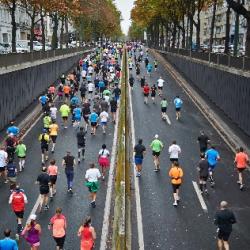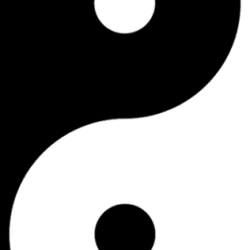In keeping with The Karate Kid and “everything is Kung Fu” theme, here’s a gem from the original, the “Rowboat Scene”, which represents the “everything is Karate” theme by way of the “so I don’t have to fight” revelation. You may remember that Daniel is practicing his form, while balancing on the Mr. Miyagi’s boat, eager to learn how to punch.
Mr. Miyagi again intercepts Daniel’s eagerness to learn how to punch with a reply found in bushido, the samurai way of the warrior:
“Better learn balance. Balance is key. Balance good, karate good. Everything good. Balance bad, better pack up, go home. Understand?”
Similar to “everything is Kung Fu” theme, Shotokan Karate founder Gichin Funakoshi’s 20 precepts hit the same theme of balance and “everything is Karate”. To name a few:
- Never forget: karate begins with rei and ends with rei (Rei means courtesy or respect, and is represented in karate by bowing)
- There is no first attack in karate
- Do not think karate belongs only in the dojo
- Karate training requires a lifetime
- Transform everything into karate; therein lies its exquisiteness
- Always be good at the application of everything that you have learned
These precepts were heavily influenced by the Bushido seven principles: the right decision and rectitude, bravery and heroism, compassion and benevolence to all, courtesy and right action, truthfulness and utter sincerity, honor and glory, devotion and loyalty [1].
If you feel Karate and Bushido’s principles ring of the Taoist, Yinyang “everything is Kung Fu” theme above – right on. The underlying philosophies of the Japanese bushido were heavily influenced by ancient Chinese philosophies. Confucianism, Taoism, and Buddhism are regarded as “three pillars” of ancient Chinese society and all influenced in each other [2]. The samurai were heavily influenced by the Chinese philosophies of Zen Buddhism and Confucianism [3], and these philosophies heavily influenced by Chinese Taoism (and consequently, Yinyang thought) – all three pillars having been influenced by each other [4].
Like with the Taoist influence of “everything is Kung Fu” in China, in Japan lie precepts that “everything is Karate”, which is influenced by bushido, the samurai way of the warrior, which itself was influenced by Taoist philosophy and specifically the Yinyang. Karate’s aim is balance and harmony, it’s to be utilized for self-mastery and self-defense. One should always try to deescalate and avoid a fight. Karate is bigger than just the dojo; it’s an spirit, lifestyle, and ethic – everything is Karate.
Back to the scene. Daniel is eager to learn “fighting”, while Mr. Miyagi is eager to team him “balance” and Daniel once again is enlightened (bold my emphasis):
- Daniel: Hey – you ever get into fights when you were a kid?
- Mr. Miyagi: Huh – plenty.
- Daniel: Yeah, but it wasn’t like the problem I have, right?
- Mr. Miyagi: Why? Fighting fighting. Same same.
- Daniel: Yeah, but you knew karate.
- Mr. Miyagi: Someone always know more.
- Daniel: You mean there were times when you were scared to fight?
- Mr. Miyagi: Always scare. Miyagi hate fighting.
- Daniel: Yeah, but you like karate.
- Mr. Miyagi: So?
- Daniel: So, karate’s fighting. You train to fight.
- Mr. Miyagi: That what you think?
- Daniel: [pondering] No.
- Mr. Miyagi: Then why train?
- Daniel: [thinks] So I won’t have to fight.
- Mr. Miyagi: [laughs] Miyagi have hope for you.
Karate is not fighting. First learn balance. Everything is Karate.
Deep.
References:
[1] https://www.jka.or.jp/en/about-jka/philosophy/
[2] https://www.nationalgeographic.org/article/chinese-religions-and-philosophies/
[3] https://www.history.com/topics/japan/samurai-and-bushido
[4] https://asiasociety.org/buddhism-china
Image credit: Alexandramander













